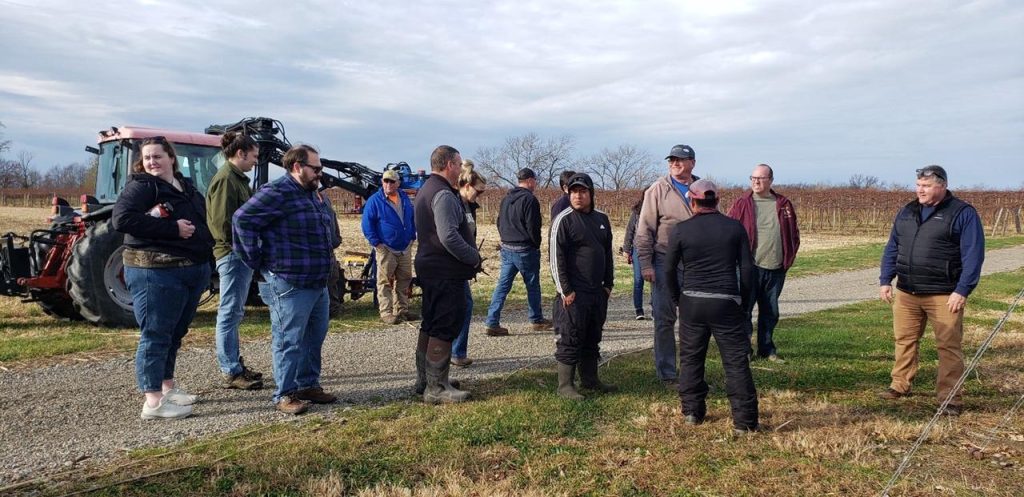
(WNY News Now) By combining science and useful methods to increase vineyard productivity, the Pruning School at the Cornell Lake Erie Research and Extension Laboratory provided grape producers with invaluable practical training.
NEW YORK, PORTLAND (November 21, 2024) On Tuesday, November 19, 2024, the Cornell Lake Erie Research and Extension Laboratory’s Lake Erie Regional Grape Program held pruning school on our AgriTech Campus in Portland, NY. In direct response to a few grower requests, this program was established. Dr. Terry Bates gave a quick overview and registrants had a little lunch to start the day. He discussed the decades-long pruning study conducted in our area, which has shaped our research-based pruning techniques. The importance of soil health, nutrient availability, and water cannot be emphasized, even if the program’s main focus was on manipulating crop size. Higher crop loads are supported while preserving fruit quality and vine vigor by increasing vine size through efficient water and fertilizer management. The team talked about the rationale behind the most fruitful buds, the best kind of cane wood, what a balanced vine is and how to find it, how balancing your vines will help your vineyard succeed in the future, and the numerous automated pruning trials. Following a great Q&A session, the participants ventured out onto our study vines to watch the CLEREL crew hand-prune the vines and learn how to gather pruning weights—a crucial method for determining your crop load and balancing your vines.
For the first time in many years, a large number of people attended this event. Both experienced growers who brought their vineyard crew members and new growers who came to learn were there. All of us were happy with how this educational event turned out and plan to do it again in the future. To make sure our pruning shears are the best for the season, it was suggested that future classes include a blade-sharpening component.
Pruning levels’ effects on Concord grape production have been investigated by Dr. Terry Bates and colleagues, who have produced scholarly papers on the findings. Pruning must be done strategically to maximize productivity and preserve appropriate juice soluble solids. It has been shown that if midseason crop changes are made, increasing the number of maintained nodes per vine can increase yields with minimum delay in harvest. Using mechanical pruning systems, on the other hand, drastically lowers expenses and gives producers a method to increase revenue without sacrificing quality. The size of the vineyard, the environment, and the goals of the producer should all be considered when selecting a pruning technique. The best balanced and financially feasible choice for the majority of New York Concord grape producers is mechanical + hand pruning, which maximizes yields and quality while lowering labor costs.
Cornell Cooperative Extension of Chautauqua County (CCE-Chautauqua) offers a variety of programs, including the Lake Erie Regional Grape Program. Operating under an administration and organizational structure authorized by Cornell University as an agent for the State of New York, CCE-Chautauqua is a subordinate government entity with an educational mission. According to Internal Revenue Code section 501(c)(3), it is exempt from taxes. The organization is a member of the nationwide cooperative extension system, which is a partnership between the federal, state, and local governments for education. The system in this state is administered by Cornell, a land grant institution in New York. Under the general supervision of Cornell, each Cornell Cooperative Extension association is a separate employer under the direction of an elected Board of Directors. Every association strives to fulfill state and national objectives in addition to the demands of the counties in which they are situated. Call 716-664-9502 or visit our website at www.cce.cornell.edu/chautauqua for additional information. Equal employment and program opportunities are offered by Cornell University Cooperative Extension.
(Included are two photos.)
